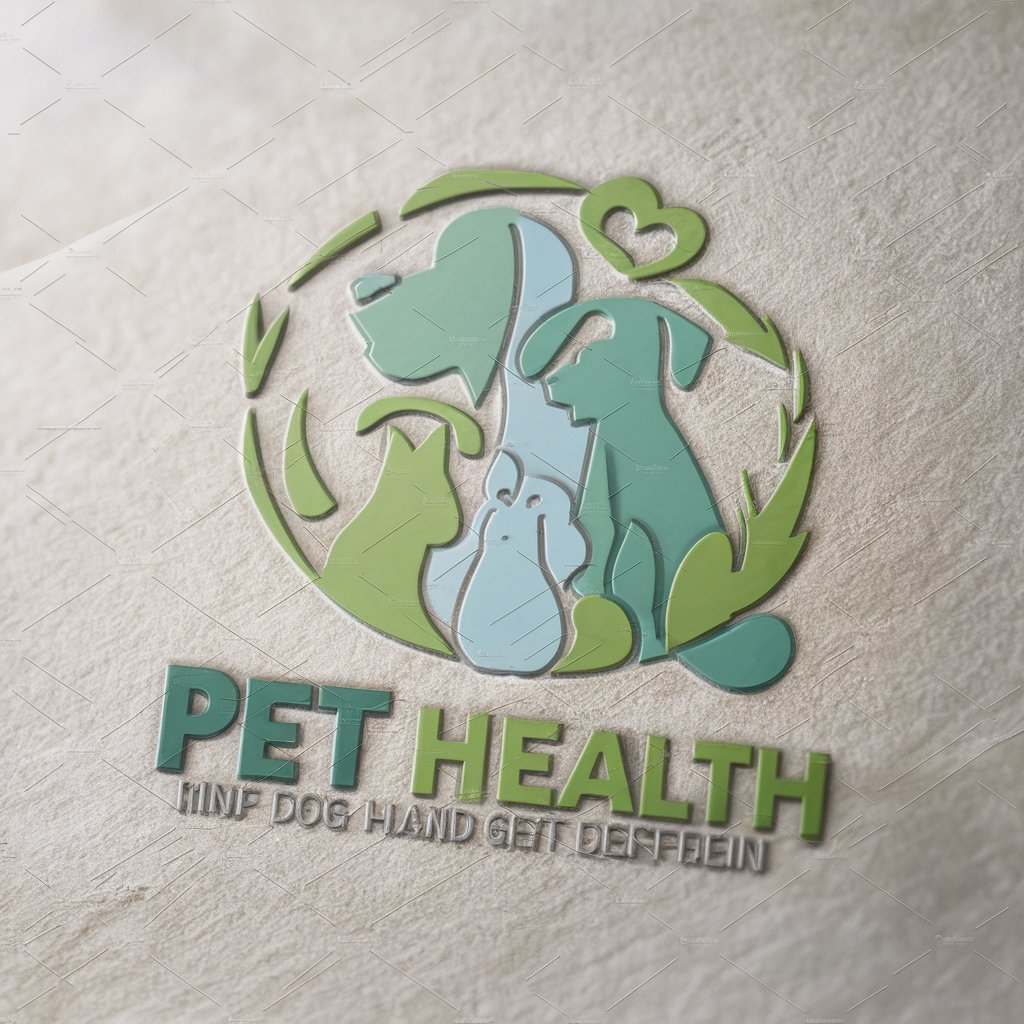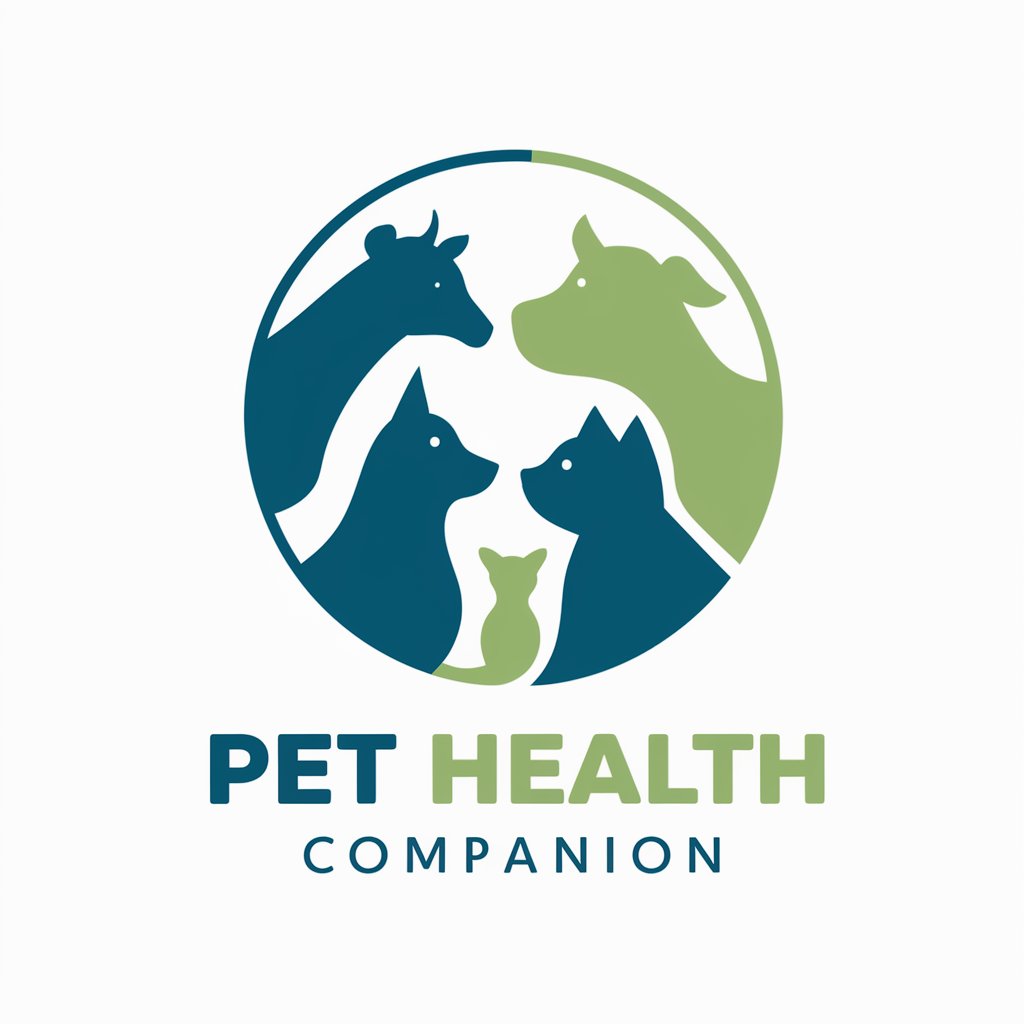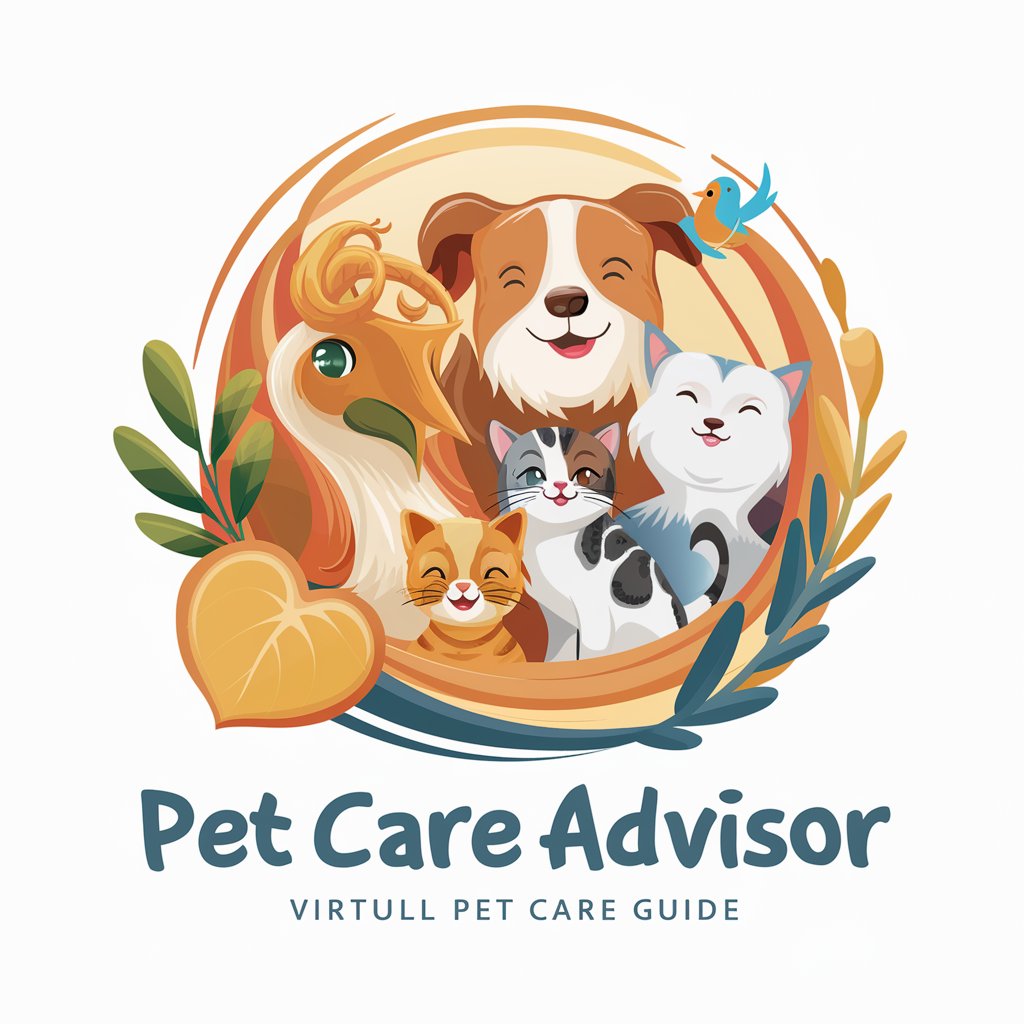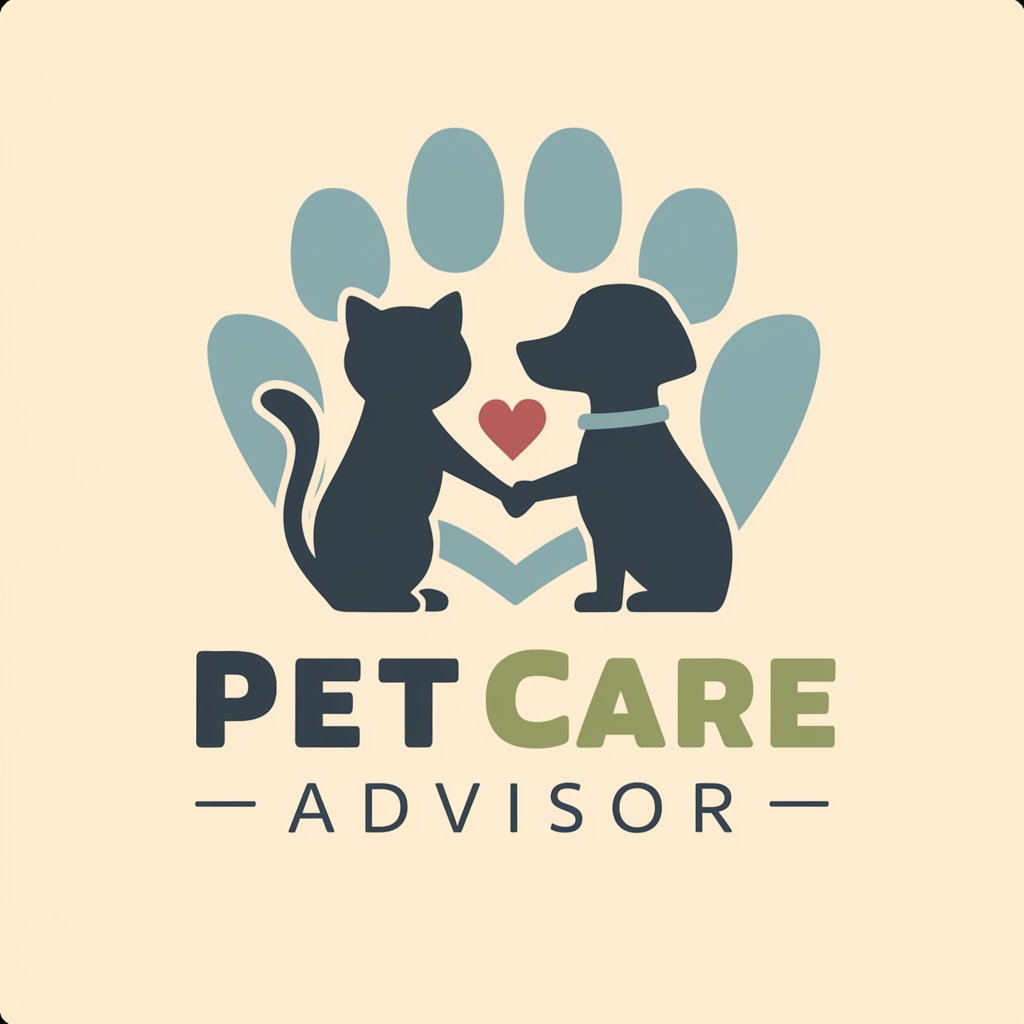
Pet Health Guide - Veterinary Advice, No Signup
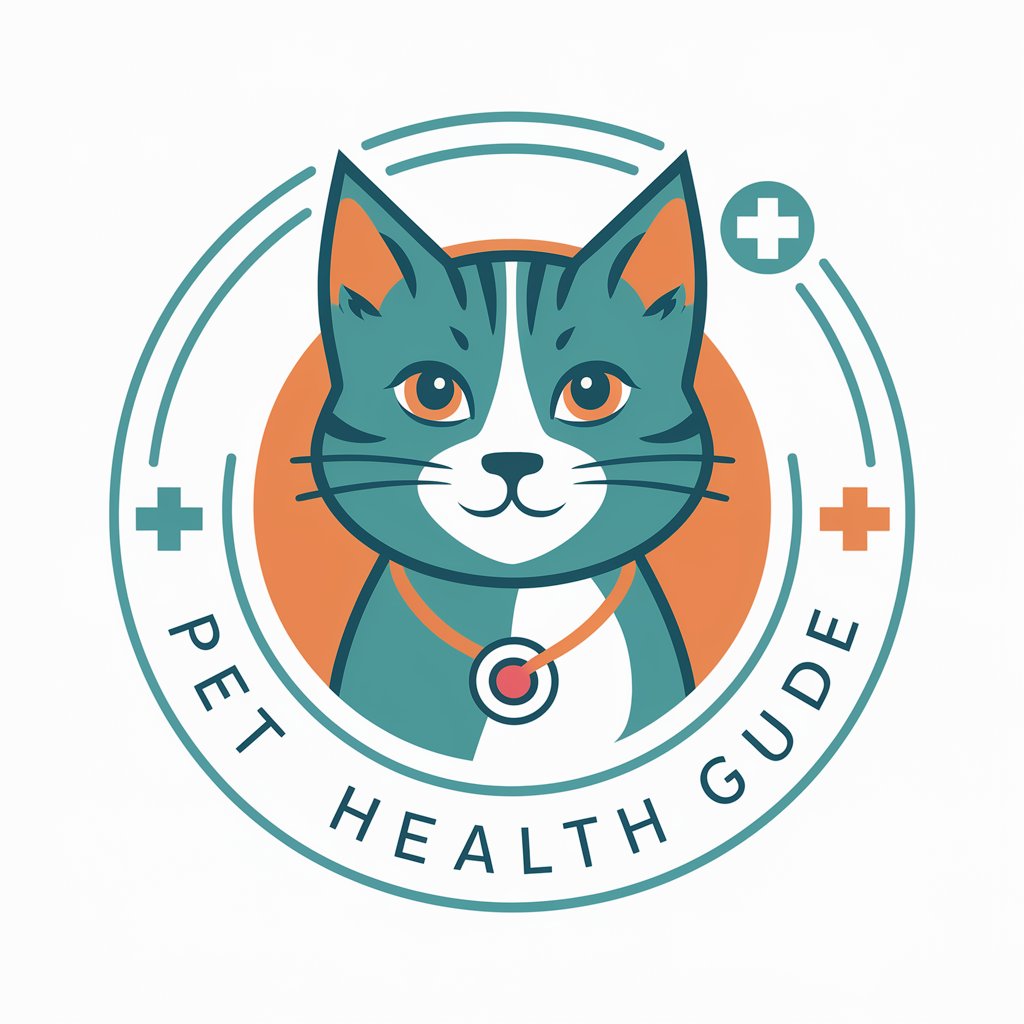
Hello! How can I help with your pet's health today?
AI-powered Pet Health Assistant
What are the common causes of
How can I tell if my pet has
When should I see a vet for
What are the symptoms of
Get Embed Code
Overview of Pet Health Guide
Pet Health Guide is designed as a comprehensive digital assistant for pet owners, focusing on the health and well-being of pets. Its primary goal is to provide accurate, up-to-date veterinary knowledge to help owners understand and manage their pet's health better. This includes offering advice on preventive care, general health tips, and identifying emergency signs that necessitate a visit to a professional veterinarian. For instance, if a pet owner notices their dog showing signs of lethargy, excessive thirst, and sudden weight loss, Pet Health Guide can suggest these could be symptoms of diabetes mellitus and recommend consulting a vet for blood sugar tests and a thorough examination. The guide is structured to encourage responsible pet ownership by emphasizing the importance of professional veterinary diagnosis and treatment, while also educating owners on common health issues, diagnostics, and tests. Powered by ChatGPT-4o。

Core Functions of Pet Health Guide
Providing Preventive Care Advice
Example
Recommendations for routine vaccinations and parasite control.
Scenario
A user planning to adopt a puppy can learn about the essential vaccinations (like rabies, distemper, and parvovirus) and the appropriate ages for each, as well as regular flea and tick prevention measures.
Offering General Health Tips
Example
Guidance on diet, exercise, and mental stimulation.
Scenario
An owner of an overweight cat receives tips on weight management through controlled feeding, portion sizes, and interactive play to encourage physical activity.
Identifying Emergency Signs
Example
Recognizing symptoms that require immediate veterinary attention.
Scenario
If a pet owner observes their pet has difficulty breathing, severe vomiting or diarrhea, or sudden collapse, Pet Health Guide advises these are emergencies and to seek veterinary care immediately.
Educating on Common Diagnostics and Tests
Example
Explaining the purpose and process of common veterinary tests.
Scenario
For a dog suspected of having heart disease, the guide outlines how a vet might use chest X-rays, echocardiograms, and EKGs to diagnose the condition.
Target User Groups for Pet Health Guide
New Pet Owners
Individuals who have recently adopted or are planning to adopt a pet and need guidance on basic pet care, health maintenance, and understanding common health issues.
Experienced Pet Owners
Those with experience in pet ownership who seek to deepen their knowledge on specific health conditions, advanced care, or staying updated on the latest in pet health and preventive measures.
Pet Care Professionals
Veterinary technicians, pet sitters, and groomers who require a reliable source of pet health information to supplement their professional training and provide better care to the animals they work with.

How to Use Pet Health Guide
Initiate Free Trial
Start by visiting yeschat.ai to access a free trial of Pet Health Guide without the need for registration or a ChatGPT Plus subscription.
Identify Your Needs
Consider the specific pet health question or concern you have, whether it's about symptoms, preventive care, or general health tips.
Ask Your Question
Type your question into the chat interface clearly and concisely. Include relevant details such as symptoms, pet's age, and any recent changes in behavior or environment.
Review the Guidance
Read through the provided advice carefully. The guidance includes insights on possible causes, recommended diagnostics, and when to seek veterinary care.
Consult a Veterinarian
Always consider the advice as preliminary and consult with a professional veterinarian for a diagnosis and treatment plan.
Try other advanced and practical GPTs
Plant Pal
Empowering Green Thumbs with AI

Mast Guide
Empower your Webflow designs with AI

Your Dutch Lawyer
AI-powered Dutch Legal Expert

Babymoon Planner
Personalize your babymoon with AI

Discover Japan
Unveiling Japan with AI

Questions About God
Empowering rational discourse on divinity

SovereignFool: OutdoorOdyssey Guide
Empowering Your Wilderness Journeys

SovereignFool: LandscapeJoker
Cultivating beauty, sustainability, and business growth.

SovereignFool: The Guide
Connecting You to Expert Craftsmen, AI-Powered

SovereignFool: ParentingSolo Guide
Empowering Solo Parents with AI Wisdom

Meditation journey
Personalized AI Meditation Companion

SovereignFool: TimeTravel Theorist
Explore Time Travel with AI-Powered Insights

Frequently Asked Questions about Pet Health Guide
Can Pet Health Guide diagnose my pet's illness?
Pet Health Guide provides preliminary advice based on symptoms and general health information but cannot diagnose illnesses. Always consult with a veterinarian for an accurate diagnosis.
Is it safe to follow the advice for administering medication to my pet?
You should never administer medication to your pet without specific instructions from your vet, even if Pet Health Guide suggests that medication could be involved in treatment.
How accurate is the health information provided?
The information is based on up-to-date veterinary practices and knowledge. However, individual cases may vary, and professional veterinary advice is paramount.
Can Pet Health Guide help with emergency pet situations?
While it can provide guidance on recognizing emergencies, it's crucial to contact a veterinarian or an emergency pet clinic immediately in actual emergencies.
How can I get the most out of Pet Health Guide?
Provide detailed information about your pet's situation, ask specific questions, and use the guidance as a basis for a conversation with your veterinarian.
